Our Environment, Animal Tips & the Great Outdoors
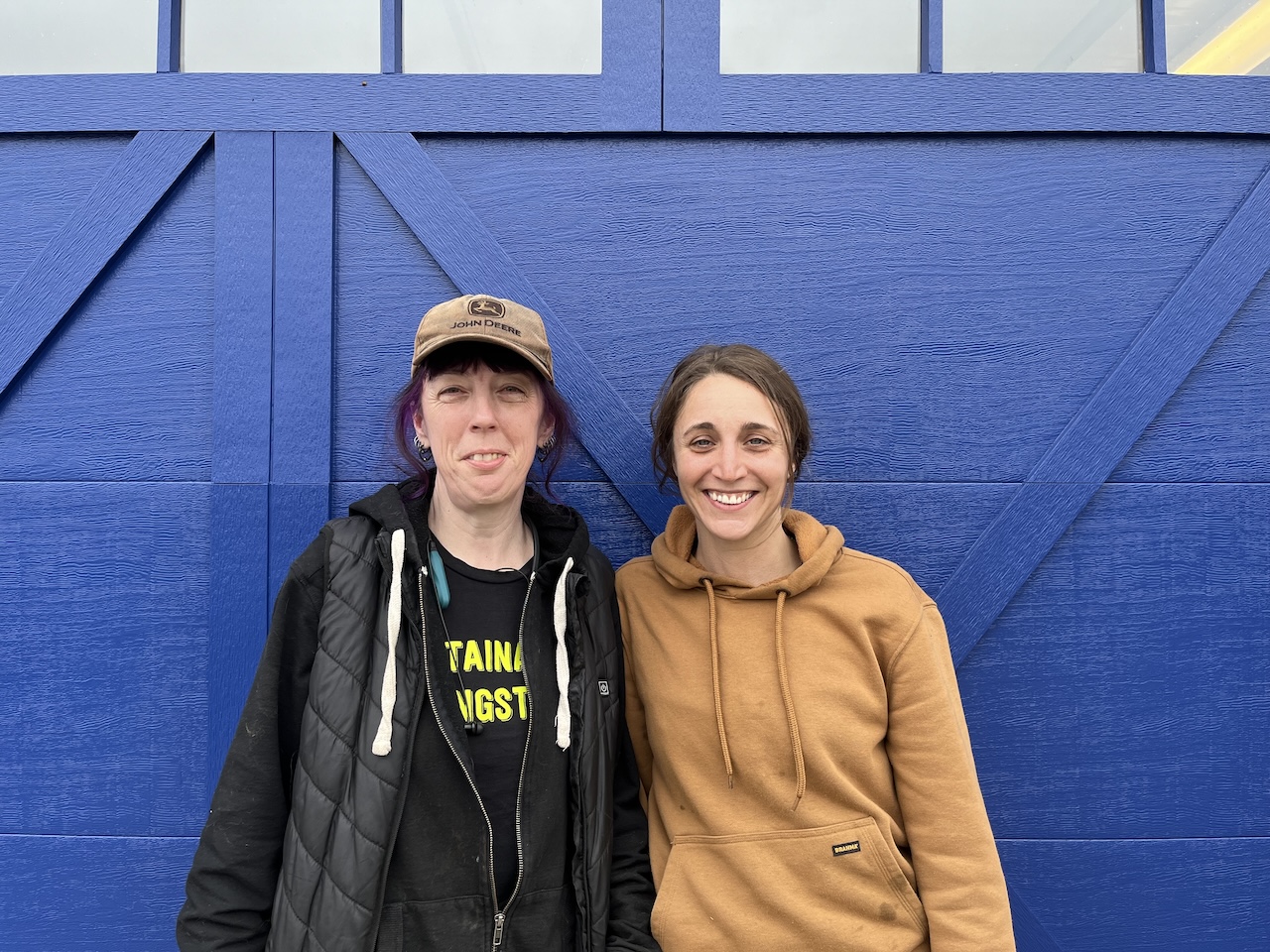
Maitri Farm Champions Sustainable Farming and Community Connections
Maitri Farm, set back a ways off of Amenia Union Road, may seem quiet and modest at first glance, but the farm is anything but.
Maitri, which is named after the first of the four sublime states taught by Buddha, previously served as a dairy farm for many years. When the current land owner purchased it, she wanted the land to be used for agricultural production. “She’s a big fan of native trees and birds, so we have a lot of habitat management around the cycles of when the birds are going to be nesting,” said Jenn Djambazov, Maitri’s Farm manager. “She’s also a huge supporter of young agriculture, and she wanted to ensure that this space would be available for young farmers to learn how to farm and keep agriculture happening at this end of the valley.”
Prepping for the upcoming season
Currently, Jenn and Alisa Sacino, who are co-farmers at Maitri, are doing a lot of seeding in preparation for the upcoming season. Seeding for the summer goes through the end of June, then they take a brief break before they start seeding for the fall season at the end of June and early July. 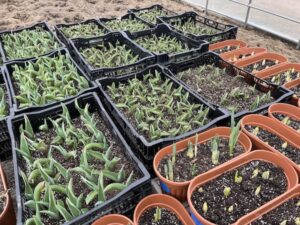
In addition to seeding, they’ve also prepared the high tunnels so that they can start planting earlier in the season. They’re also getting equipment lined up, planning, and the dreaded paperwork. “The majority of the farm paperwork happens in January and February, so it’s the whole year shoved into two or three months,” Jenn said. “Once May starts, we don’t have time to do that because we’re out in the field. So for now, it’s finishing up the last of those odds and ends.”
For Alisa, there isn’t really an off season. The first CSA of the season is tulips, and it starts this week. “We’ve been refining the process so that the launch can be as early as possible. The more we can keep the farm in production, the easier it is to keep the farm as a viable source for the community,” Alisa said.
But having a production season that never ceases can get difficult at times.
“You get back and instead of doing paperwork, you’re right back into production. The opportunity to shift focus where the market is going to support it.”
Speaking of the community, Maitri Farm prides itself on its connections and involvement with the local community. Each season, they hire locals to work on the farm and help out through the season. “The people in the community have a vested interest in the success of the farm, so we especially like to hire locals whenever possible,” Jenn said.
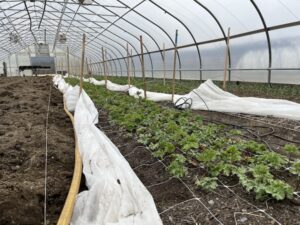 Weather + sustainable growing practices
Weather + sustainable growing practices
You’d think that milder winters would be better for crops, right? Wrong.
“The lack of winter is the reason I started growing tulips in crates. I would plant them in the tunnels, but the ground isn’t freezing so last year they were half the length that they should have been,” she said. “This year, we adjusted by growing everything inside and keeping them in a cooler to ensure that it’s cold enough, but it’s so much more physically taxing than just growing them in the ground.”
Maitri put in a new irrigation system last summer. They have yet to use it because there’s been so much rain. “It’s challenging. It means we can’t get outside as early as we’d like to. It puts more stress on us to plant and stack our growing spaces, and it limits the amount of prep we can do when we can’t get outside ahead of the season,” Jenn said.
Maitri Farm is certified organic by the Northeast Organic Farming Association (NOFA). While NOFA doesn’t certify flowers, Maitri is able to treat them as organic, which means that they are able to interplant their vegetables and flowers together. It prevents them from having separate sections and also serves as integrative pest management (IPM). IPM is a science-based process that combines tools and strategies to identify and manage pests. At Maitri, this means planting marigolds by the tomatoes and the onions by the flowers to prevent pests from ruining the crops. 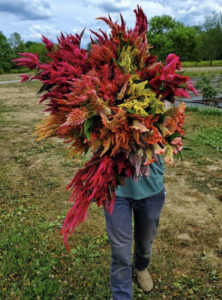
“It also has the benefit of making the fields really beautiful, too,” Jenn said.
“We’re constantly adjusting how we’re planting and growing so that we’re using the components of the farm as pest control strategies to meet organic compliance, bringing in pollinators, and figuring out how we can support each other’s production even though we’re not growing the same things,” Alisa added.
Maitri also aims to go far beyond the bare minimum standard of being NOFA certified organic. They take advantage of the fact that they’re small enough to also do things like intensive soil management, crop rotation, adding compost, soil testing, and utilizing minimal tillage and creating permanent beds.
“We want to improve the quality of our soil and be better stewards of the land,” Jenn said. “Ground that is well-weeded and has a balanced biome produces healthier crops that are able to withstand dry days, pests, and more extreme weather circumstances.”
Additionally, Jenn said that focusing on the farm as a whole – as opposed to sections – makes it easier to think about how the actions in one area are going to affect another area. “Real certified organic reflects more than just the certification,” Jenn said. “We have a conservation plan for the farm that addresses the narrowing of the creeks, invasive weeds, and many other issues.”
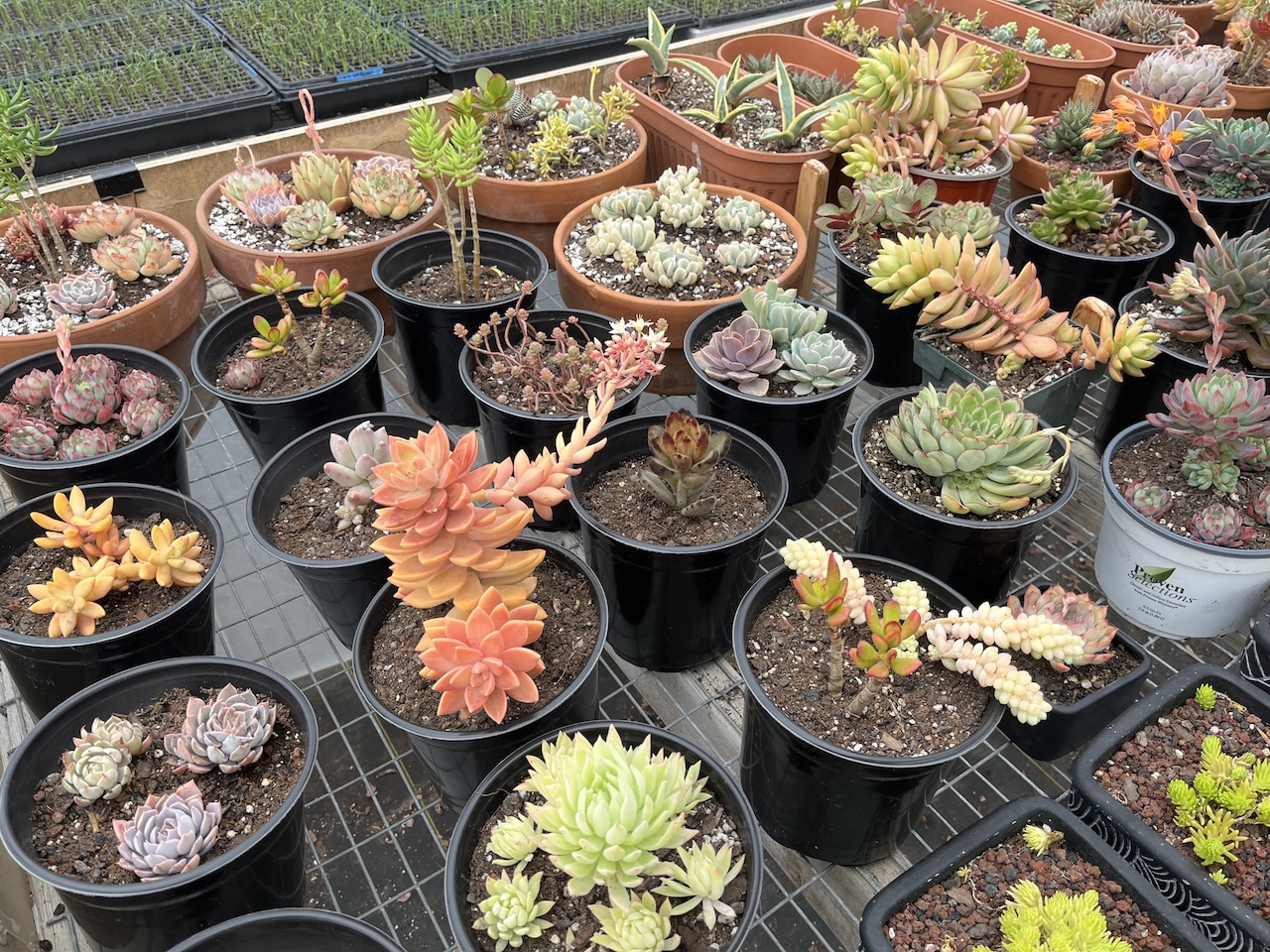
Challenges + rewards
“Learning how to stop farming is a continually evolving process,” Jenn jokes. She also lives on the farm, and as a result, she finds it incredibly difficult to separate her work from the rest of her life.
“I have to physically leave sometimes. We invested in an office manager last year to give us administrative support, reduce stress loads, and make it so that if one of us doesn’t come in, the farm can still run. The business component of farming is what farmers aren’t trained in, and a lot of times, it’s what causes us to burn out and stop altogether.” 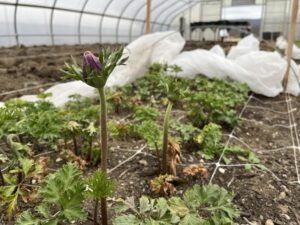
Alisa, who is relatively new to farming, said that the hardest thing for her is staying in the present moment. “Time goes by so fast because in farming, you’re constantly thinking about the future,” she said. “In May, we’re seeding pumpkins. It’s really hard to stay present because you’re constantly thinking about what’s ahead.”
Long-term goals
Looking ahead, Jenn said that she and Alisa plan on working together for a few more years “at the very least.”
“We have a unique opportunity at this farm with the property owner in that she doesn’t have a set expectation about how we run the farm, so we get to do what we see fit based on a number of factors,” Jenn said.
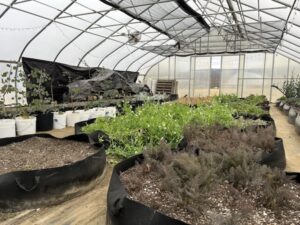 Some of their target goals for the farm include having enough production to be a sustainable business that can keep a full-time staff, as well as having the property and conservation plans managed efficiently.
Some of their target goals for the farm include having enough production to be a sustainable business that can keep a full-time staff, as well as having the property and conservation plans managed efficiently.
“And of course, continuing to serve our community,” Alisa said.
Jenn and Alisa’s goals with Maitri are to continue addressing the issues that face small communities – i.e. the food desert, employment, and housing – while also working with their neighbors to see how they can be an effective resource for the community.
They recently reached out to the North East Community Center in Millerton about bringing students who are interested in agriculture to the farm to “foster the love of ag in the younger generation.”
Final notes
“We’re constantly trying to build our skill sets and leave the farm in a better place than we found it,” Jenn said. “Support your local farmers, eat fresh and local, and remember, it’s not dirt, it’s farm seasoning!”
To learn more about Maitri Farm, visit their website here, or visit them in person at 143 Amenia Union Road, Amenia, NY 12501.


